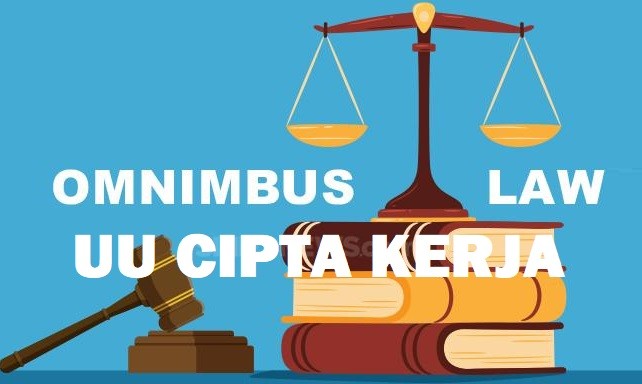The Job Creation Law Facilitates the Investment Climate
By: Agung Suwandaru)*
South Sulawesi.id| The investment climate in Indonesia must be maintained so that it continues to show a positive trend, one of which is through the implementation of the Job Creation Act. The abundance of investment has had a positive impact on the national economy, because it is able to absorb labor which will have an impact on increasing people’s purchasing power.
The Coordinating Ministry for Economic Affairs continues to optimize collaboration with the private sector to meet infrastructure spending needs for the 2020-2024 period. Currently, the government is also developing strategies and recommendations for alternative infrastructure financing schemes to reduce the burden of equity and State Capital Participation (PMN) through five financing instruments.
The five financing instruments in question include the Government and Business Entity Cooperation (PPP) scheme, the Limited Management Rights scheme, the Sovereign Wealth Fund (SWF) which has been mandated by the Job Creation Law, an integrated funding platform, and the Land Value Capture (LVC) scheme. the acquisition of an increase in the value of the area.
The economic expansion from 2020 to 2024 is mainly driven by increased investment which is expected to grow 6.6% to 7.0% per year. This is stated in the National Medium-Term Development Plan (RPJMN) 2020-2024.
Deputy for Coordination of Regional Development and Spatial Planning at the Coordinating Ministry for Economic Affairs, Wahyu Utomo, stated that the increase in investment was driven by increased investment by the Government and State-Owned Enterprises that were earmarked for infrastructure development.
Wahyu said, LVC can be defined as a policy on the use of increasing land value resulting from investments, activities and government policies in an area using two application bases, namely tax-based LVC and development-based LVC.
Wahyu said, the Coordinating Ministry for the Economy has started a study regarding the potential implementation of the LVC scheme in Indonesia since 2019. Until 2021, the Coordinating Ministry for the Economy has collaborated with various parties to develop regulations so that the LVC scheme can be applied in Indonesia, followed by implementation studies at several demonstration locations. projects.
Demo project as an effort to introduce and implement the LVC scheme in Indonesia, the Coordinating Ministry for the Economy in collaboration with the World Bank and DFAT-Australia has compiled a study of demo projects for the implementation of the LVC scheme in five cities in Indonesia, namely the Harmoni MRT Station area of DKI Jakarta, TOD area Jurangmangu Tangerang Banten, Gedebage area, Bandung, West Java, TOD area, Tawang Station, Semarang, Central Java, and Sekanak Lambidaro area development, Palembang, South Sumatra.
The implementation of the LVC scheme in Indonesia is expected to bring various economic benefits, including increasing local revenue (PAD) through regional taxes and levies, developing more organized urban areas, controlling regional economic growth and promoting economic equity in urban areas.
The LVC scheme consists of three main cycles, namely regional value creation, value capture and value financing. Development activities that are considered to create an investment value from the provision of infrastructure are referred to as regional value creators because they have the potential to increase the value of the area for the better. The increase in value is then captured by the government which will be used to repay infrastructure investment.
Since 2019, the government has apparently been actively conducting studies in the context of preparing regulations and analyzing demo projects in collaboration with donor agencies, one of which is the World Bank (World Bank), as an effort to develop LVC in Indonesia. Currently the draft regulation in the form of a presidential regulation (perpres) which is expected to be the basis for the implementation of the LVC scheme has been completed and will go through a harmonization process as the next stage of legalization.
In addition to the LVC scheme, there is another scheme that is no less important, namely the Sovereign Wealth Fund (SWF). The SWF is a State-owned financial vehicle that owns or manages public funds and invests them in a broad and diverse array of assets. Concretely, the Sovereign Wealth Fund is a state savings, excess funds owned by the state that are invested with the aim of getting a greater return.
With the various cooperation schemes, it is hoped that there will be no state revenue that is not utilized. This income can be invested appropriately and with quality so that a large return can be obtained. This of course will have a positive impact on the national economy and investment climate in Indonesia.
)* The author is a contributor to the Bekasi Literacy Forum
